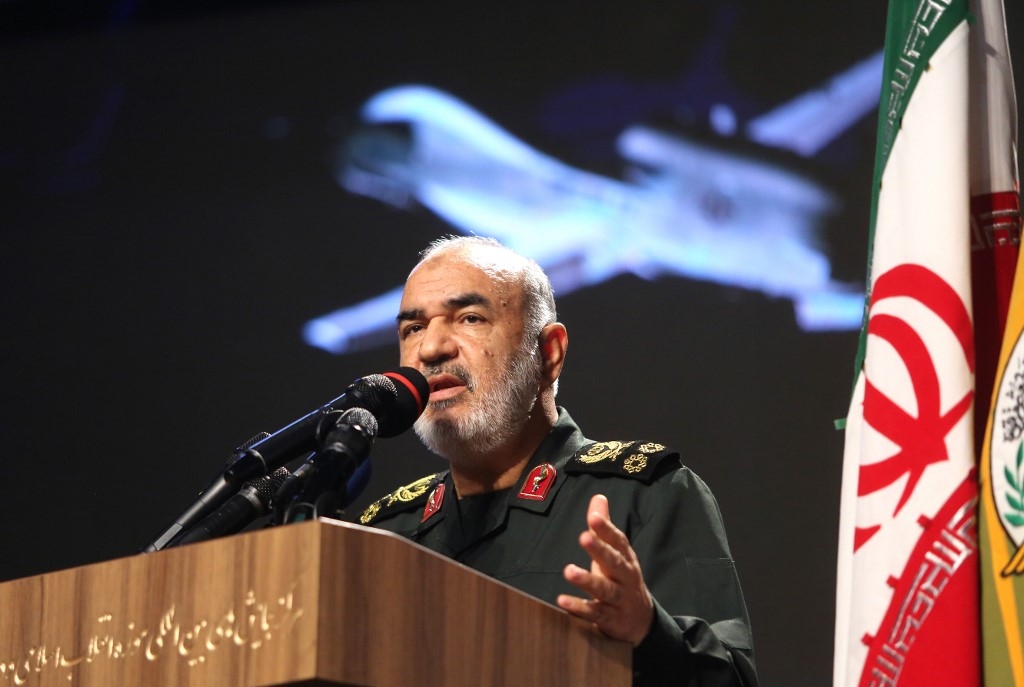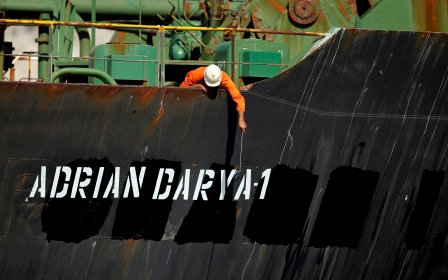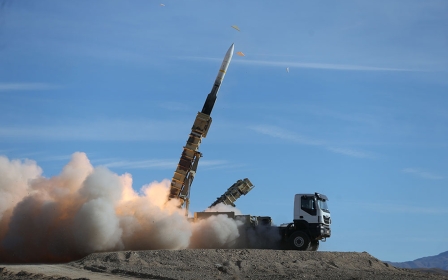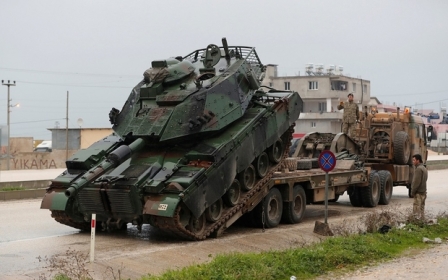Iranian press review: IRGC developing driverless stealth speed boats

The head of the Islamic Revolutionary Guard Corps (IRGC) has revealed that Iran is developing a new generation of driverless speed boats equipped with stealth technology, the IRGC-affiliated news agency Fars reported.
From a conference in the port city of Bandar Anzali, Major General Hossein Salami said on Wednesday that Iranian speed boats must be equipped with covert technology in order to operate in Iran’s territorial waters.
The IRGC’s speed gunboats are the main threat to the US Navy in the Gulf, and military specialists believe that if an armed confrontation takes place in the region, Iran will deploy its boats for suicide attacks against US warships.
Meanwhile, the head of IRGC naval force announced that the boats are now capable of reaching a speed of 167 kmph, Tasnim news agency reported. The highest speed for Seraj, the first generation of Iranian speedboats, was 101 km per hour.
China’s support for Iran: Lots of talk, no action
New MEE newsletter: Jerusalem Dispatch
Sign up to get the latest insights and analysis on Israel-Palestine, alongside Turkey Unpacked and other MEE newsletters
Iranian economists and political analysts have raised doubts over the effectiveness of China’s support for Iran in the face of the US's devastating sanctions and maximum pressure policy.
While China has always objected to US sanctions on Iran, Beijing has made no tangible moves to help Tehran by importing its oil, reports the Mardom Salari daily.
The article, under the headline “China with Iran or harmonised with US?”, reported that Chinese oil imports from Iran sharply fell after the unilateral withdrawal of the Americans from the nuclear agreement between Iran and world powers last year.
“China has never acknowledged the sanctions that Donald Trump imposed on Iran, and Iran has also counted on China’s support to reduce the humanitarian impact of US sanctions,” wrote the daily.
According to Mardom Salari, China imported about 800,000 barrels of crude oil from Iran per day this April, a month before the US ended all waivers on imports of Iranian oil.
China stopped buying oil from Iran in May and, between June and September, Beijing has imported an average 150,000 barrels of Iranian oil per day, a massive drop.
Lawmakers split over TV confessions
A motion introduced in parliament to ban Iran's national broadcaster from recording and broadcasting forced confessions while investigations are ongoing has sparked a heated debate in the country.
Mahmoud Sadeghi, an outspoken legislator, proposed the ban in late September that would stop the Islamic Republic of Iran Broadcasting (IRIB) - which is controlled by conservatives under the direct supervision of Iran’s supreme leader - from airing the confessions, a regular practice since the 1979 revolution.
Obtaining and broadcasting forced confessions has been a vital part of suppressive measures by the authorities to demonise dissidents.
However, the practice has come under severe criticism since it was revealed that “Terror Club”, a 2012 documentary about the assassination of Iranian nuclear scientists, was made by Iran’s intelligence ministry based on forced confessions.
On 8 October, the Hamdely daily wrote that the motion has both strong opponents and supporters among Iranian legislators, adding that the issue is not just a social or political one, but also an ethical dilemma.
Meanwhile, Iranians took to social media to remind politicians of cases of forced confessions in recent years.
One Iranian Twitter user asked: “Instead of criminalising the recording and broadcasting of forced confessions, isn’t it better to put a ban on this practice in general?”
Iran’s Gulf strategy unchanged
Iran’s strategy in the Gulf has not changed during the past four decades, an IRGC commander said this week during a ceremony commemorating the IRGC forces who died in a military confrontation with US forces in 1987.
“If the Persian Gulf is unsafe for us, it will be unsafe for others too and this is the same strategy that Iran had in 1987. After 32 years, we still follow the same strategy and protect all our interests in this region,” Ramezan Zirahi was quoted as saying.
Escalating tensions between Iran and the US in the Gulf in recent months has left many observers warning that a new military confrontation like the Tanker War, which saw Iraq and Iran target each other's ships between 1984 and 1988, could threaten the security of oil exports from the Middle East to the rest of the world.
On 8 October 1987, during the Tanker War, the IRGC claimed that its forces downed a US helicopter in response to an attack by the US Navy that destroyed Iran’s radar site on Farsi Island.
During the Tanker War, US forces supported Saddam Hussein and destroyed much of Iran’s naval combat strength.
*Iranian press review is a digest of reports that are not independently verified as accurate by Middle East Eye.
Middle East Eye delivers independent and unrivalled coverage and analysis of the Middle East, North Africa and beyond. To learn more about republishing this content and the associated fees, please fill out this form. More about MEE can be found here.




